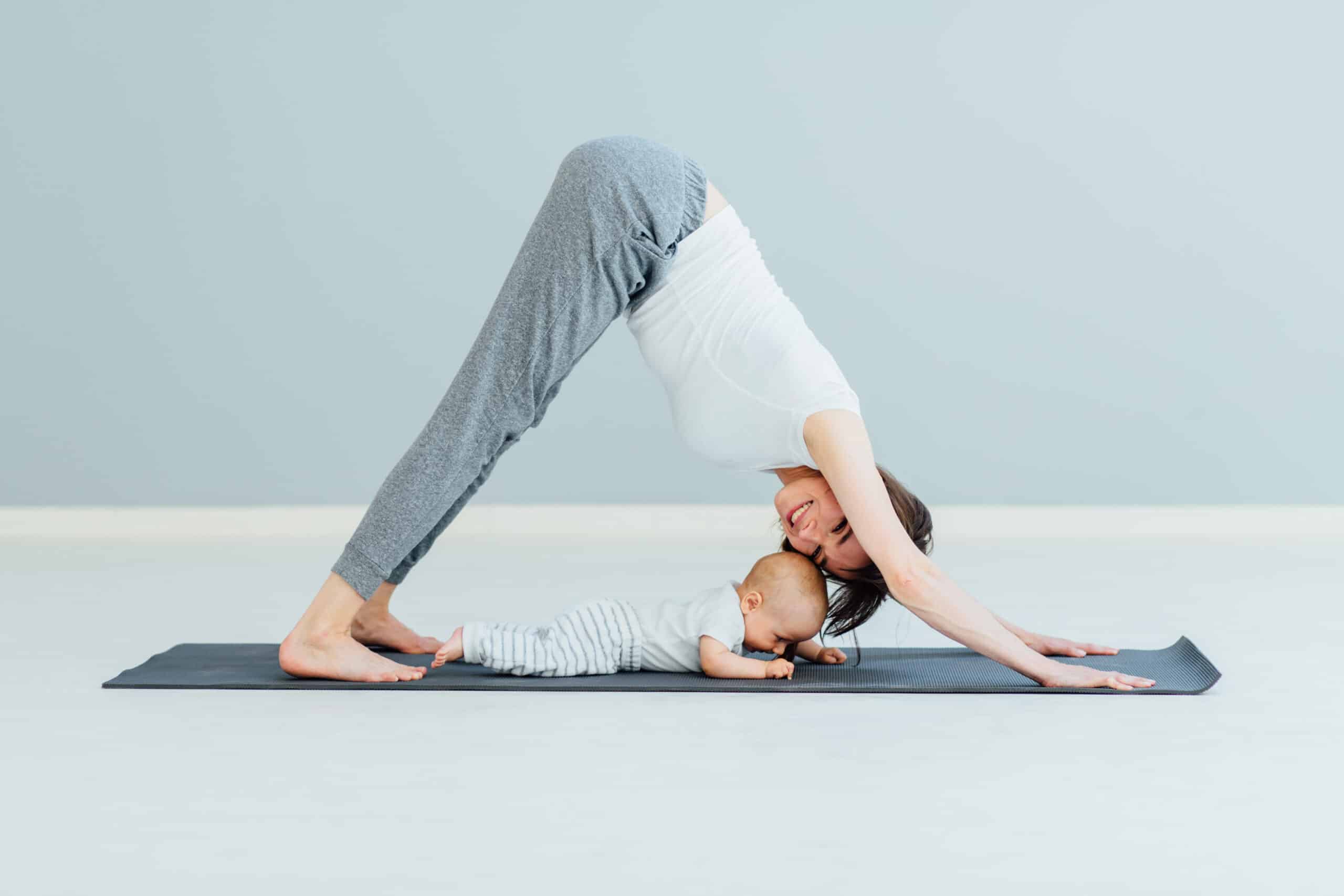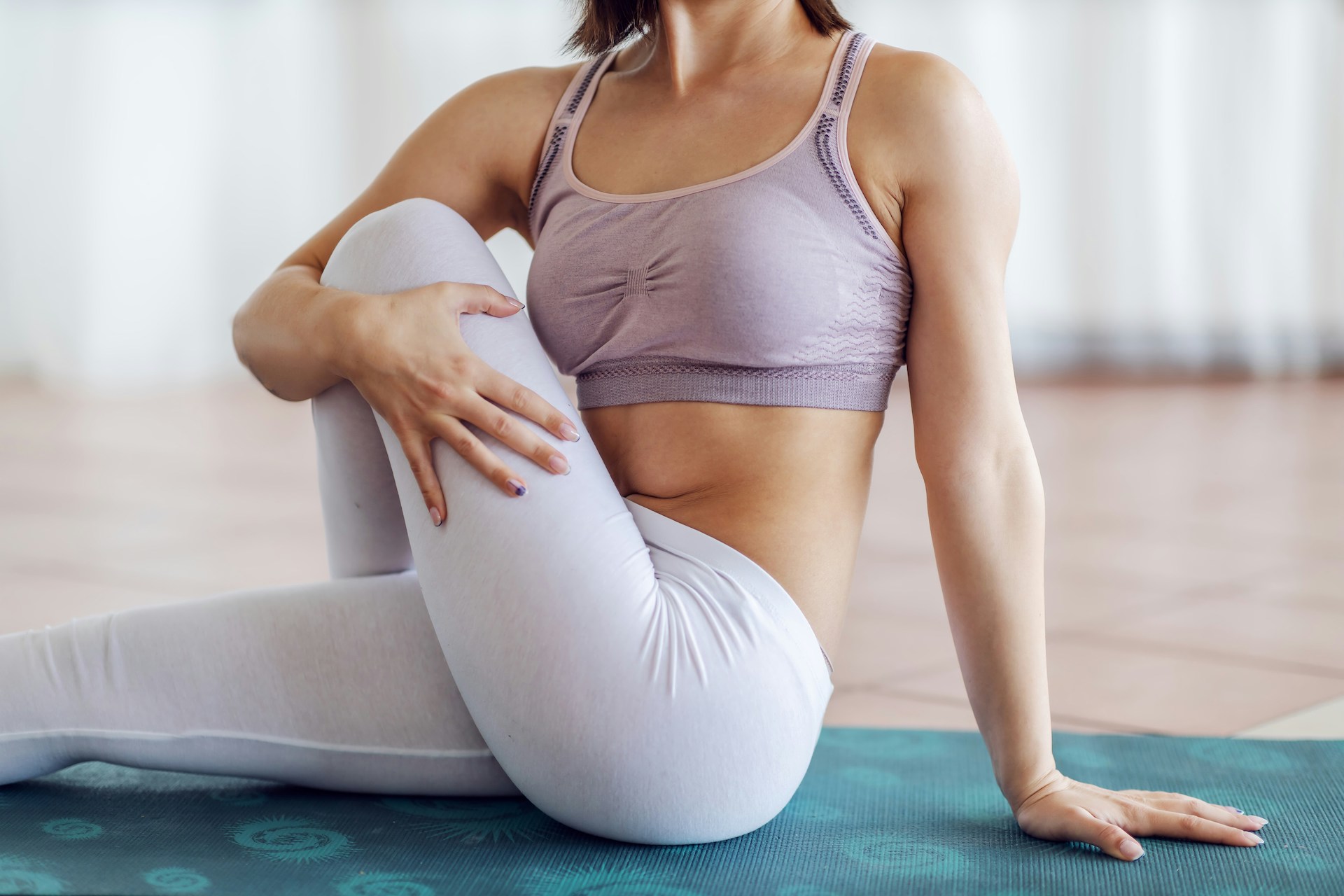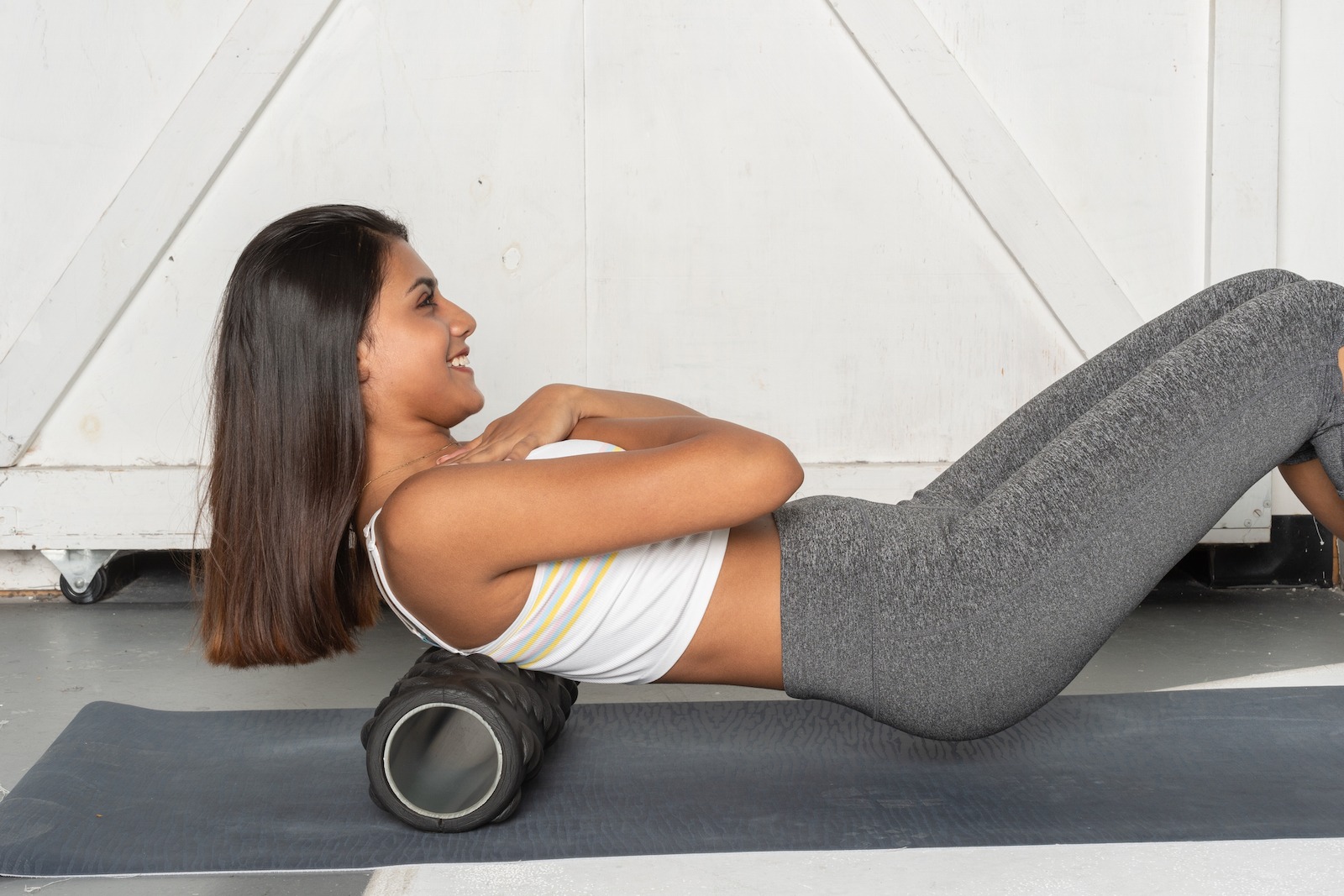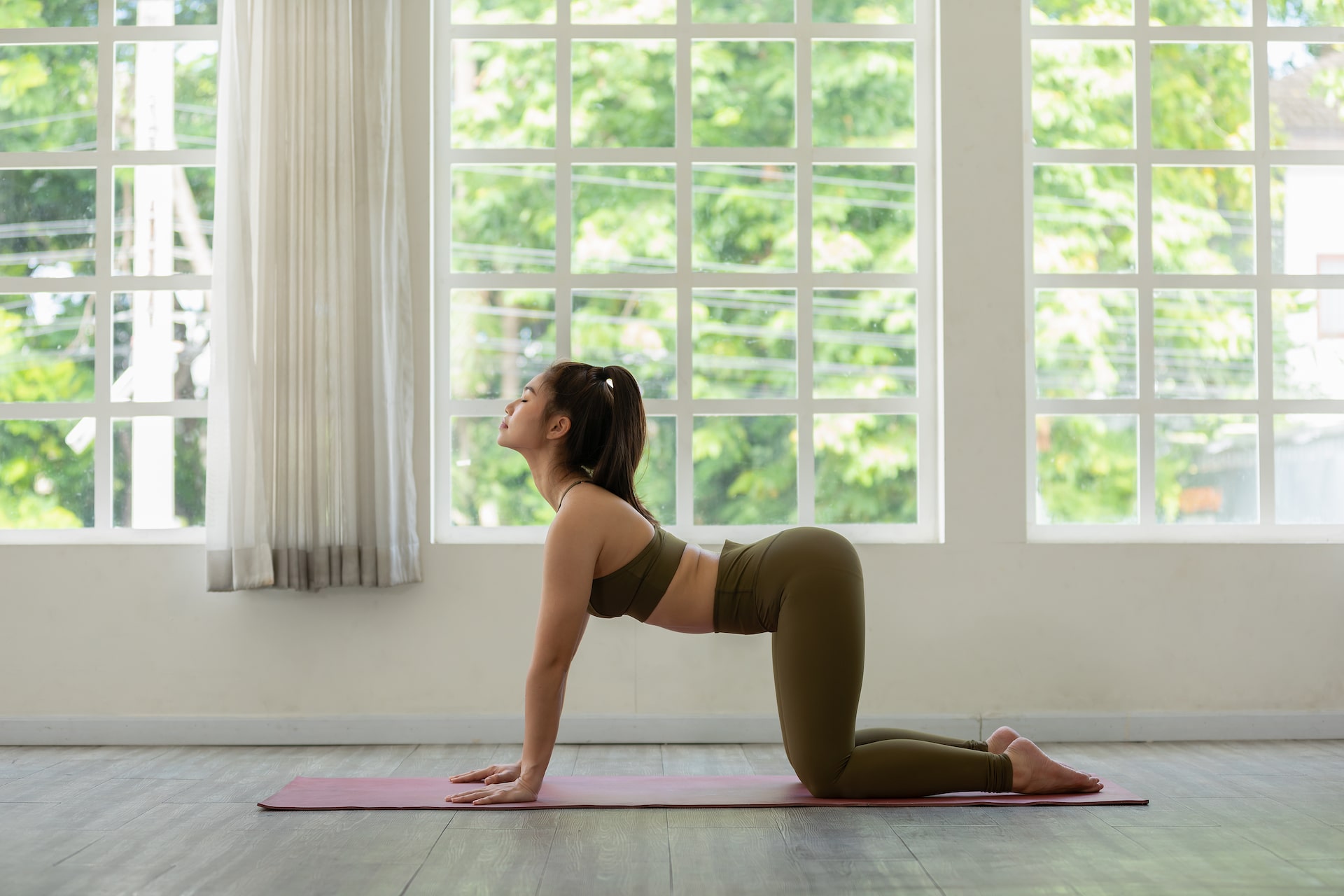5 Important Reasons to Exercise That Have Nothing to Do With Weight Loss
Home » Sweat Often » 5 Important Reasons to Exercise That Have Nothing to Do With Weight Loss
By Leah Cohen, MS, RDN, NLC
Exercise works wonders for our physiological and psychological health. In fact, joyful movement is essential for health and wellness.
However, we are more often bombarded with all of the ways that working out can change, shape, tone, lift, and trim our exterior.
Don’t get me wrong—I’m all for a killer core and there is absolutely value in feeling good about the way we look. But what about the way exercise makes us feel? What about all of the incredible mind-body benefits of exercise?
RELATED: This Will Totally Change the Way You Think About Core Strength
For some serious sweat inspiration, I’m shifting the focus to a few top reasons you should be incorporating physical activity into your life, none of which have anything to do with altering your appearance. Let’s get moving to feel our best, improve our health, and boost our happiness.
5 Exercise Benefits That Aren’t Weight Loss
-
1. Reduced Depression and Anxiety

Exercise is a powerful tool for managing depression and anxiety. First, it reduces stress hormones while increasing feel-good hormones.
Cortisol is one of our main stress hormones; it is our “fight or flight hormone.” Cortisol is released in periods of acute stress, but it can be chronically elevated in those with anxiety. Research has shown long-term Tai Chi practitioners have statistically significant decreased levels of cortisol compared to those who are sedentary. Other studies have demonstrated that exercise may make us better equipped to deal with stress; exercise can moderate the cortisol response to stressors and desensitize brain tissue to elevated cortisol.
RELATED: Adrenal Fatigue, Explained
Exercise also increases serotonin, the “happy hormone” that promotes feelings of well-being and optimism. Additionally, just getting out, moving, and seeing other people (if you’re going to an exercise class, seeing a trainer, or working out with friends) can help distract you from your anxieties and boost your mood.
-
2. Decreased Risk for Heart Disease, Diabetes, and Cancer

Exercise can lower your risk for all kinds of chronic disease. First, it increases insulin sensitivity and allows our muscles to take in glucose without the presence of insulin, lowering blood sugar levels and helping to prevent and treat type 2 diabetes. Research shows that just a 10-minute walk after a meal can significantly reduce glucose levels.
Working out also decreases visceral fat, the belly fat that surrounds your organs and is associated with higher risk of diseases like breast cancer, colon cancer, type 2 diabetes, and heart disease.
RELATED: How to Lower Heart Disease Risk, According to a Top Nutritionist
Regular exercise regulates our hormones, helps us to maintain a healthy weight, reduces inflammation in the body, and improves immune response—all things that contribute to lower overall disease risk.
-
3. Improved Brain Function and Decreased Memory Loss

Exercise may help you feel more focused and productive due to increased blood flow to the brain. If you’re feeling antsy and easily distracted at work, try getting up and going for a 15-minute walk then returning to your desk. Bonus if you can fit in a workout before work or in the middle of your workday.
Physical activity also promotes the repair of damaged nerve cells and the creation of new nerve cells in the brain. For these reasons, exercise may help to combat memory loss, prevent neurodegenerative diseases like Alzheimer’s, and improve quality of life for those suffering from these diseases.
-
4. Better Sleep

About 30 percent of adults experience symptoms of insomnia, and if you’re included in that statistic, a consistent workout regimen may help you fall asleep faster, stay asleep longer, and get better quality sleep. This may be due to decreased excitability and anxiety post-exercise, and the role exercise plays in regulating circadian rhythms.
My clients tend to report that they sleep better at night when they physically tire themselves out during the day. This doesn’t mean you have to do an intense workout each day, but a good goal is to aim for 30 minutes of moderate activity daily.
-
5. Better Sex

Still not convinced to get moving? Research shows that regular exercise lowers the risk of erectile dysfunction for men and boosts libido in both men and women. This may be due to hormonal regulation as well as the increased confidence and self-esteem that exercise induces.
RELATED: Are Exercise-Induced Orgasms Real?
If you are trying to have kids or plan to in the future, moderate exercise has also been shown to boost fertility in women. It is important to note, however, that if women over-exercise, it may negatively affect their hormones and hinder their ability to get pregnant.
To sum it all up, in my practice, I have seen my clients benefits from regular exercise in all of these ways. I’ve also seen them increase their self-esteem, enjoy life more, and develop a deeper connection to themselves and the people around them. Whether it’s taking a bike ride with a loved one, dancing, walking, or hitting the gym, my advice is to move in a way that feels good for your body and your mind.
(Photos: Shutterstock)
-
About Leah Cohen

Leah Cohen MS, RDN, NLC is a dietitian and nutrition coach. Leah offers in-person counseling at her home office in Scarsdale, New York, as well as virtual counseling for her long-distance clients. She works with clients to create customized nutrition goals, meal plans, and treatment plans based on their individual needs and preferences. Leah loves food and cooking, and she believes that taste and enjoyment should never be sacrificed for good nutrition. She works collaboratively with her clients to create nutrition plans filled with nutritious foods that they truly enjoy.
Leah’s focuses include GI disorders, hormonal imbalance, diabetes management, food allergy and intolerance, weight management, chronic disease management and prevention, and food relationships. She likes to work from a holistic perspective, taking into account each individual’s food habits, sleep regimen, stress management techniques, and exercise routine.
Leah received her master’s in clinical nutrition from NYU and completed her dietetic internship at New York Presbyterian-Brooklyn Methodist Hospital. Leah is an active member of the Academy of Nutrition and Dietetics and the Greater Dietetics Association of New York. Her practices are rooted in science, and she is passionate about helping others achieve their health and wellness goals. Visit her website at www.leahcohennutrition.com, follow her on Instagram at @leahcohennutrition, or email her at leah@leahcohennutrition.com.
The Nutritious Life Editors are a team of healthy lifestyle enthusiasts who not only subscribe to — and live! — the 8 Pillars of a Nutritious Life, but also have access to some of the savviest thought leaders in the health and wellness space — including our founder and resident dietitian, Keri Glassman. From the hottest trends in wellness to the latest medical science, we stay on top of it all in order to deliver the info YOU need to live your most nutritious life.
RECENT ARTICLES

Want a sneak peek inside the program?
Get FREE access to some of the core training materials that make up our signature program – Become a Nutrition Coach.
Get Access"*" indicates required fields
 Sweat Often
Sweat Often












































































































































































































































































































































































































































































































































































































































































































































































































































































































































































































































































































































































































































































































































































































































